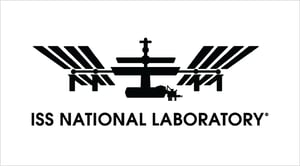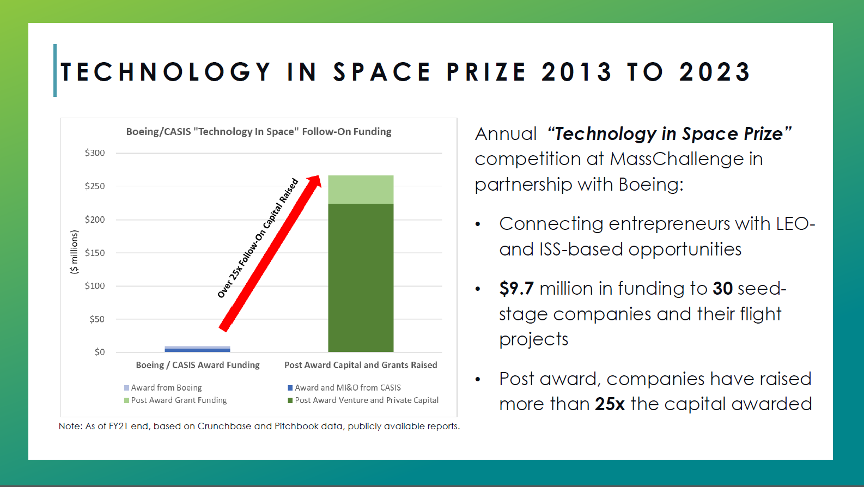The History of the International Space Station National Laboratory and MassChallenge
 Since 2014, the Center for the Advancement of Science in Space, Inc. (CASIS), manager of the International Space Station (ISS) National Laboratory, and Boeing have funded an annual Technology in Space Prize. The prize supports startups who participate in a MassChallenge program by providing the opportunity and access to the ISS National Lab to conduct innovative research and technology development (R&D). The prize awards up to $500k in nondilutive funding annually.
Since 2014, the Center for the Advancement of Science in Space, Inc. (CASIS), manager of the International Space Station (ISS) National Laboratory, and Boeing have funded an annual Technology in Space Prize. The prize supports startups who participate in a MassChallenge program by providing the opportunity and access to the ISS National Lab to conduct innovative research and technology development (R&D). The prize awards up to $500k in nondilutive funding annually.MassChallenge is one of the largest startup accelerators and supports high-impact, early-stage entrepreneurs, providing access to world-class mentorship, in-kind support, and other benefits to help startups succeed. CASIS partnered with MassChallenge to explore how research and technology development in low Earth orbit might give startup companies a competitive edge. Through collaboration with MassChallenge, the ISS National Lab serves as a business incubator—providing a path for entrepreneurs to improve their products or services and shorten time to market.
Since its inception, the Technology in Space Prize has provided $9.7 million in funding to 30 startups for R&D sponsored by the ISS National Lab. Notable projects include:
- Development of an artificial retina to restore vision in those blinded by macular degeneration
- Protein crystallization research to aid in the treatment of cancer
- Convection-free synthesis of 2D nanomaterials to detect radiation sources
- 3D stem cell-derived culture model to test gene therapies for Alzheimer’s, Parkinson’s, and Huntington’s disease
The Technology in Space Prize Over the Years...
The Technology in Space Prize provides startups with grant funding, operational and science support for spaceflight projects, and the use of ISS National Lab-allocated upmass, downmass, and crewtime (which can easily amount to more than $1 million of in-kind value per project). Results from space-based R&D have led to improvements in startup technology and access to new capital. Following award of an ISS National Lab-sponsored project, startups have raised more than twenty-five times the capital awarded.

